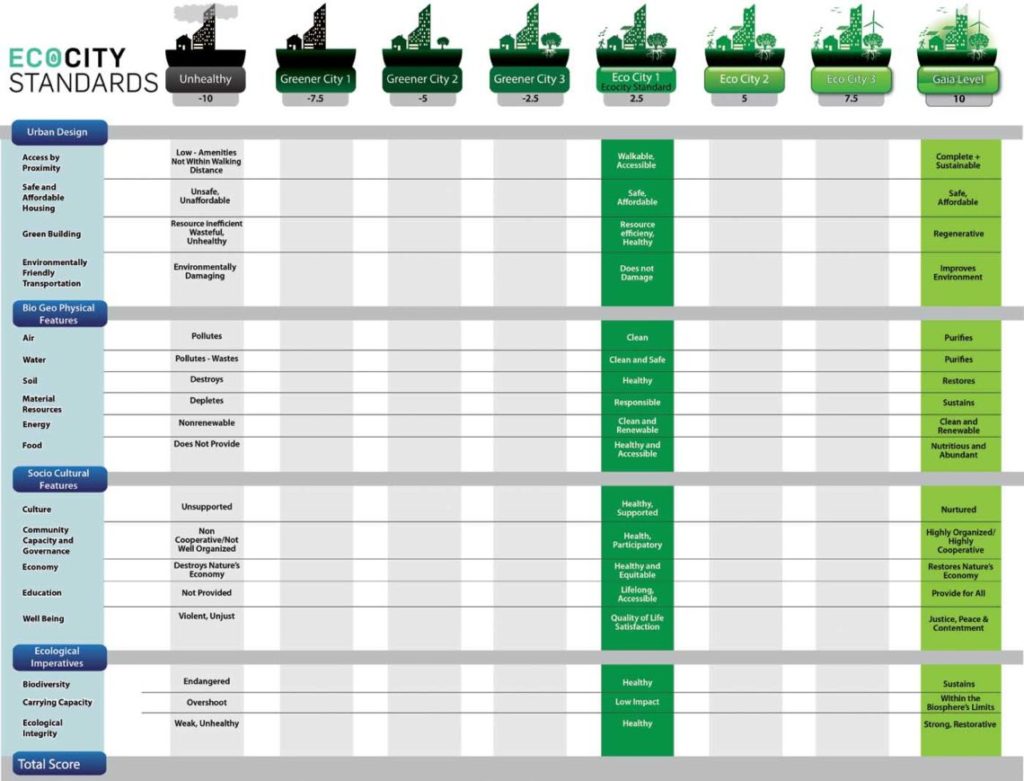An ecologically healthy city
An ecocity is “a human settlement modeled on the self-sustaining resilient structure and function of natural ecosystems.”
Here is a longer working definition by Ecocity Builders and the International Ecocity Framework & Standards (IEFS) advisory team.
An Ecocity is a human settlement modeled on the self sustaining resilient structure and function of natural ecosystems. The ecocity provides healthy abundance to its inhabitants without consuming more (renewable) resources than it produces, without producing more waste than it can assimilate, and without being toxic to itself or neighboring ecosystems. Its inhabitants’ ecological impact reflect planetary supportive lifestyles; its social order reflects fundamental principles of fairness, justice and reasonable equity.
— February 20th, 2010, Vancouver, Canada





